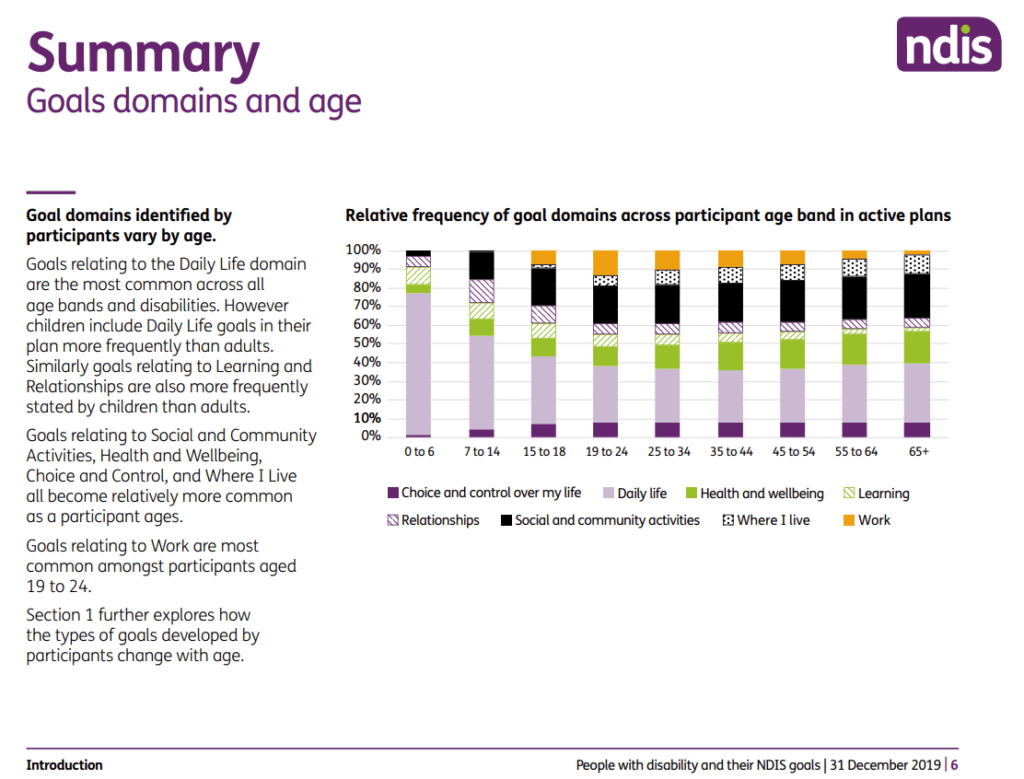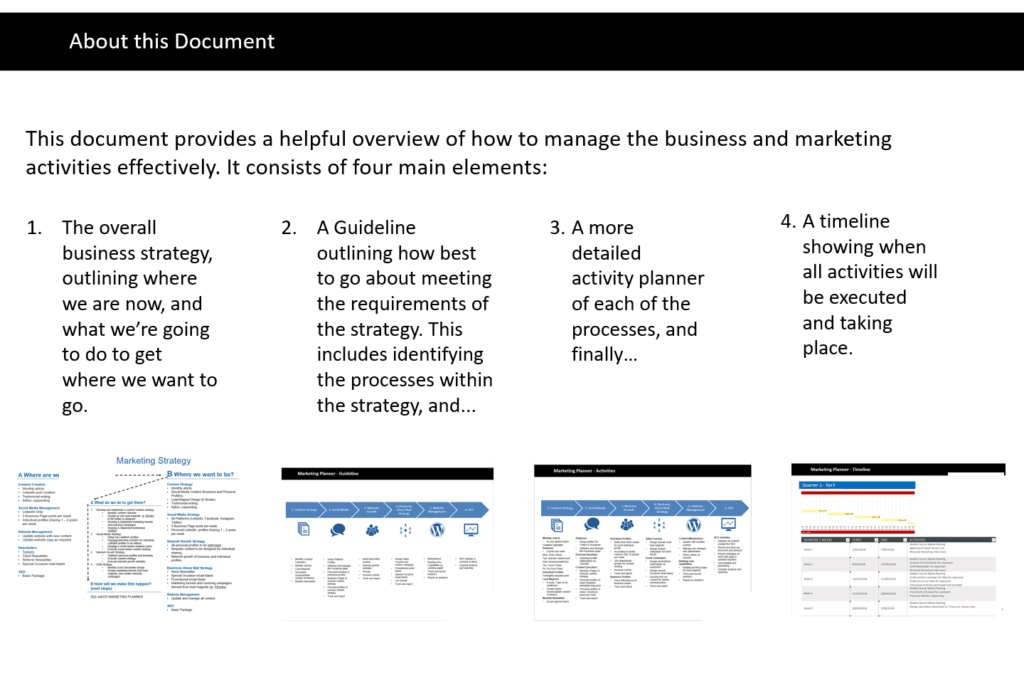Know what your clients want (what they really really want)
You may be under the misconception that your business specialises in Support Coordination (just as an example). But what you actually specialise in, is making your clients happy. And while there may be some days where this seems like an unattainable goal, it really isn’t that much of a mystery.
Here’s how to give your clients what they want and need from your business…but first:
It can be quite common for providers to complain about how difficult clients are to please once we’ve worked with them for a while. And while I agree clients can sometimes be very challenging, it is, without a doubt, your responsibility to satisfy your clients and the sector that we work in. We are not working with people who are living their best life on their best days.
It’s easy to get caught up in the work and trying to grow your own business that you make a lot of assumptions about clients and what they want and need. This post outlines some of the main things clients are looking for from provider relationship.
There are no big surprises here, no genius revelations from probing the mysterious mind of a client. These are all things you probably already know your clients want. Why? Because they’re things you would want if you were on the client side of the relationship.
But do you want to know one thing for sure that’s NOT on the top of a client’s want-list?
Ignorance and judgement.
So approach and MAINTAIN each and every client relationship with absolute respect, an open mind, and with the sole view of learning about THEM and HOW you can help them to meet their goals and needs. So it the relationship is becoming difficult or strained, there’s a very big chance that this client was not your ideal client in the first place… and that’s a whole other topic.
You know, the people who pay us money are the sole reason we get to have a business? So start treating them as such.
OK, enough with the big stick. Let’s look at what clients really want from their provider (a.k.a. YOU):
1. They want to be understood
Clients want to know that you get them, understand their situation, get their disability and their daily requirements, get their challenges, and get what they want to achieve. That you seriously get it.
They expect that your team has some experience or specialised knowledge, and that you’ve conducted your own research on their situation before you’ve even tried to convince them to work with you. They don’t want a cookie-cutter approach to their life, it’s not a one-size-fits-all situation, regardless of the fact you may only do one thing.
In fact, according to the People with disability and their NDIS Goals report, when clients were asked just how important it is that their objectives are understood by their provider, 71% answered “extremely important”.
Goals also vary by age bands and disabilities. So it’s so vital that we understand what goals really are and why they are such a vital part of the NDIS is making a decision around what plan a client actually gets.
Here is an infographic on some of that information: …

So don’t go in with guns ablazin’ with your brilliant assumptions. You need to listen, ask a lot of smart questions, and listen some more.
2. They want solutions and person centred care
Not surprisingly, clients want solutions to their problems. They want their provider to be able to measure and report on the success, the failure, the outcomes, and the recommendations that come out of working with them in accordance with their NDIS plan. Why? Because without it, they are not armed very well for their next NDIS review that may be around the corner!
This is a very challenging thing for a lot of providers. Especially when it comes to unregistered providers, as they may not have the framework in place to help them with ‘best practice’ to truly service their clients.
And while providers are getting better at reporting, according to the NDIS, clients are still reporting ‘measuring and reporting’ as their #1 unmet need when it comes to their relationship with their provider.
3. They want agility
Due to the size, and the internal structure of a lot of our businesses and the fact that the NDIS has guidelines that we need to adhere to, we can often appear to be a bit rigid in our approach. So clients look to their providers to be the antithesis of that.
While sometimes it can be cumbersome to make a change or a decision or switch gears on the client-side, they want you to be able to move and adapt quickly, adeptly, and efficiently.
We work in a rapidly changing industry and we need to be able to react to those changes in order to put it to work for our client’s success. It’s important that your business’ internal mechanisms are agile to respond, and your minds and egos are open to a change in plans.
4. They want accurate and useful Service Agreements
According to the NDIS Outcomes Dashboard, the #2 reason why clients leave a provider, is due to cost overruns on their budgets.
Clients don’t want surprises when it comes to anything. They especially don’t want money surprises. Who does? Providers must be more accurate in their service estimates and more accountable to those estimates.
You also need to understand how your client works and be clear about how their own behaviour and choices impact the budget. Rounds of revisions, delays in approvals of invoicing, reversing decisions – outline what the parameters are, where the line in the sand has to be drawn, and then warn them when it’s getting close to the mark.
We all know there can be lots of unknowns when it comes to the NDIS so find ways to build the trust needed to enable you to talk about the potential of those situations and how you’ll deal with them on the front end, not later when their jaws are on the floor from your incremental invoice.
5. They want attention
This may seem like, ‘duh’, but it is shocking how providers can easily let this slip because they’re ‘busy’. Clients want their emails answered, their phone calls taken and returned, their questions considered, their concerns addressed. And they want it done ASAP.
Your team can do great work, have brilliant ideas but if you don’t take that call when your client really needs to talk to you, almost nothing else matters.
They want to feel confident that you are there for them! And that you are going to do everything in your power to make their world run smoothly. Afterall, it’s probably the promise you made them to get them to sign the Service Agreement right??
So don’t abandon them after you got what you wanted.
With the trend towards sole traders and many starting up small disability services, staff resources can affect your ability to service your client in a way that meets their expectations. So you need to manage those expectations and have strategies in place that works. That means, you need a business plan. Whether it’s you and you alone, or whether you have 2, 3 or more staff. YOU NEED A PLAN.
Depending on what works for your structure, let them know that all calls/emails will be returned by end of day, or within 24 hours (except in emergency situations, of course). Whatever it is, pick the highest level of service that you can consistently deliver and communicate that to your client so they know what to expect. Then deliver on it.
And be careful about bringing all your top guns into your meet and greets when you’re courting a new client, but then assign all junior staff after you win the work and they never see you again. That speaks volumes to a client about how much you value their business.
6. They want continuity of care
No surprise here. Clients want you to solve their problems. They want the love, the attention, the great ideas on how to meet their needs, the innovative strategy. Moreover, they want to know that they can rely on you, and that you and your business isn’t going to be flash in the pan like so many others have been over the last few years.
They want from you what they haven’t been able to get from their previous providers over the last few years and have been burnt by promises that were never kept.
According to the NDIS Outcomes Dashboard National, these were the top three responses when clients were asked: What do you value most in provider relationships?
#1: Expertise and quality of care
#2: Person Centred Care
#3: Continuity of Care
They don’t want cool.
They’re not looking to help you build your business.
They’re not wanting the provider that doesn’t connect with them, simply does their job and goes home with no real connection and relationship.
They’re looking for great working relationships and quality care that is reliable and that they can count on. If they’re usual worker isn’t able to do a shift, they should know what to expect in that circumstance and who will show up for their shift. The last thing they want are surprises, new people, or late cancellations. Bottom line, they want to
feel like a human being that is seen and heard.
You could also create a roadmap for your own business on so that you can be very clear on what
you’re actually offering your clients. Here’s an example:
NOTE: This is the working methodology of Sassy Marketing and Communications and has copyright. Should you want to know more, you can book in for a free info session here: https://calendly.com/sassysue/30min

For more information you can go to www.sassy.marketing
Understanding your client is a key part of your journey in business. You can’t solve their problems and meet their needs if you’re continuing to offer generic services.
If you are constantly looking at tips for how to get more clients, you may want to fix this by offering value. So, make sure you develop a platform of attraction for your potential clients to really get to know, like and trust you with non-spammy, non salesy content that your clients would find interesting enough to read. I see way too much advertisements happening all over our Facebook groups… People fundamentally know what we do as a business. Start showing some real value, and not just your services as what you offer.
Still confused about how to get clients? Start thinking like one. Or come and have a chat and we’ll help get you thinking in the right direction. See more here and here

